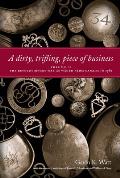

|
 |
|
This article on Loyalist families is presented in 8 parts. Click below to skip to:
Part 1 - Introduction |
Female Ancestors |
|
Introduction No group of people in 18th Century North America, with perhaps the exception of the Native Americans, had their lives torn asunder to the extent the Loyalists did. A war that started as Britain against Americans progressively became more an all-American affair, as British regulars were hard pressed to defend other parts of the empire against foreign powers. The nature of the Loyalist involvement changed as the war continued. What once seemed a possibly short war grew into a seemingly stalemated, endless struggle. When once a Loyalist farmer might believe he was leaving his farm for a short campaign, the campaigns would become years. Eventually, there would be no farm to go home to. And those he left behind would now be coming to join him. The first Provincial Corps, as regular Loyalist regiments were known, were raised in 1775 on the breaking out of hostilities. As Boston was a place almost impossible to recruit in, the first troops raised were mainly in Nova Scotia, for garrison there and in other places. One regiment, the Royal Highland Emigrants, would recruit in places as diverse as North Carolina, Staten Island, Boston, the Mohawk Valley and Newfoundland. Possibly because this corps was being raised in some places that were under Rebel control, raising the fear of retaliation or privation, whole families were drawn into this corps from an early date. Governor MONTAGU of Newfoundland was somewhat perplexed when Lieutenant Samuel BLISS of the Royal Highland Emigrants requested rations for the women and children who accompanied his detachment there in May of 1776.1 MONTAGU was forced to write to Major General William HOWE seeking guidance on the subject, never having given rations to the women and children of the 65th Regiment, who the Royal Highland Emigrants had relieved. This detachment of the Royal Highland Emigrants was often referred to as “old men” and “children,” strongly suggesting that the families that accompanied them might have been extensive. One of the “old men” who joined the regiment early on was Murdoch McLEOD, who had served in the 26th Regiment of Foot for twenty seven years, until his discharge in 1773. Settling in Montreal with his family, he joined the Royal Highland Emigrants in 1775 and was made sergeant in the new corps. Upon the arrival of the Rebel armies under Montgomery and Arnold, McLEOD packed his family and all their worldly possessions on board the Polly Store ship in order to bring them into the garrison of Quebec. While sailing on the St. Lawrence River, the ship was captured by the Rebels, he, his family and all his property falling into their hands. While a prisoner, his wife and two of his children died, leaving him a single parent (and soldier) with six dependent children still in his care. They would end the war destitute and hungry, desperately seeking to recover the £183. his possessions in the Store ship were worth.2 Some families wished to escape the horrors of war altogether. For a Loyalist in the countryside without benefit of British protection, that could be a tricky proposition indeed. Sereno and Cynthia DWIGHT led a modest but comfortable life in Massachusetts until the war. Not wishing to take part in the strife going on around them, they left the province upon the evacuation of the British troops and sailed off for West Florida. The decision proved unlucky at first when James Willing made his famous raid on the Mississippi plantations and destroyed or brought away all their belongings. The family regrouped their finances and purchased a total of 1,430 acres in three tracts of land. Sereno joined the military, probably the militia, to maintain a subsistence, acting as both surgeon and sergeant major, an odd combination. Upon war with the Spanish, he assisted in the taking of Fort Palmure. The Spanish, however, cut the communication with Pensacola, and Sereno received but 4 months pay for his services. Spanish troops burned them out of their plantation, starting them on the beginning of a long and dangerous trek. In the words of Cynthia DWIGHT: ...your Memorialist with two Children and Some of their party did under take & prosecute a jou[r]ney a Crosse ye wilderness with out a Guid[e], path or Compass; and Converted a great part of what they could collect of money into horses & Baggage. They would go on and have one more child before Sereno perished in a storm at sea trying to procure articles of living from New England shortly after the peace.
1 Letter of Governor J. Montagu to Major General William Howe, May 27, 1776. Provincial Archives of Newfoundland and Labrador, Colonial Secretary’s Office, Outgoing Correspondence, GN/2/1/A, Volume 6, Page 74.
Click here for ---> Female Ancestors Main Page Refugees & Others: Loyalist Families
The On-Line Institute for Advanced Loyalist Studies Copyright Restrictions Document Formatting Optimal Viewing |
 by Angela Elwell HuntHardcover
by Angela Elwell HuntHardcover